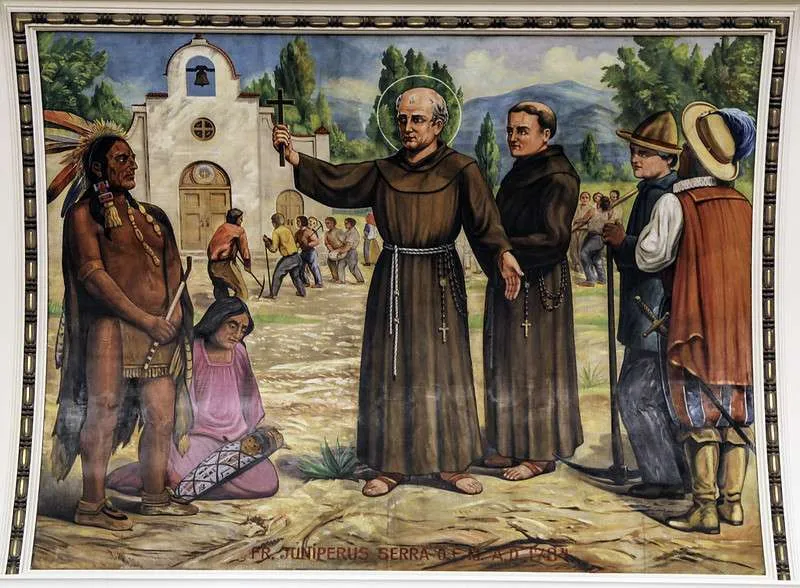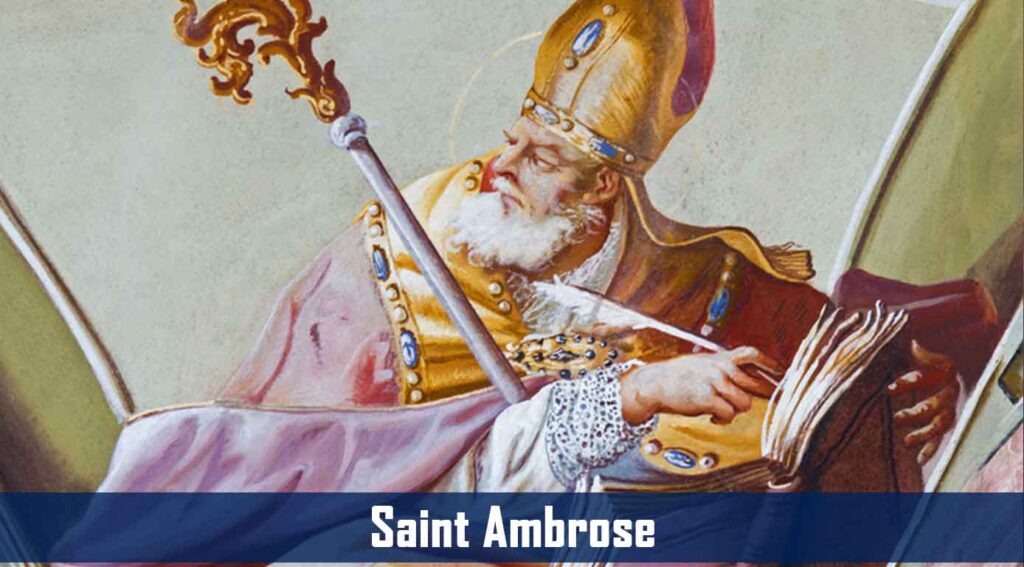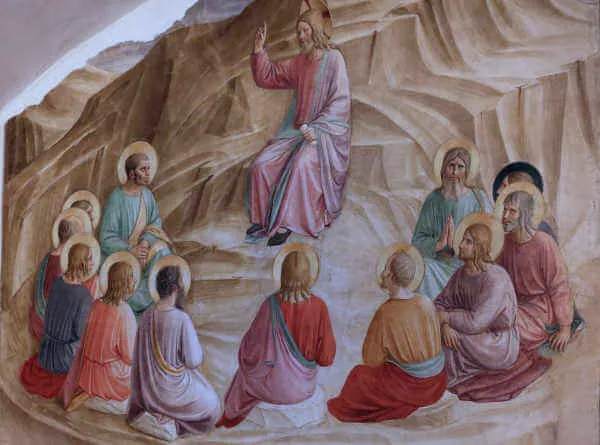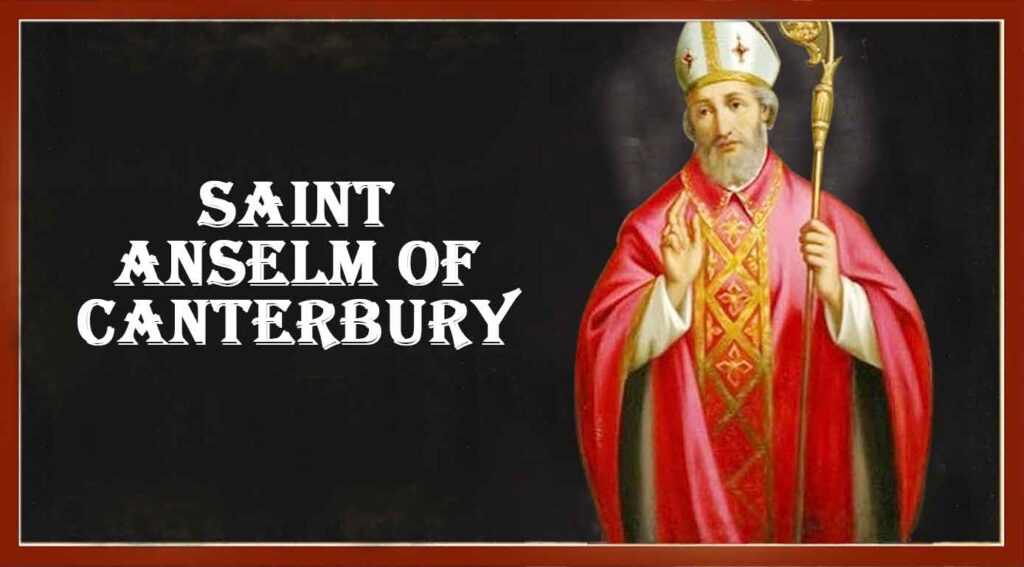1713–1784; Patron Saint of vocations, Hispanic-Americans, California; Canonized by Pope Francis on September 23, 2015
Miguel José Serra y Ferrer was born as the third of five children in the village of Petra, on the island of Majorca, Spain, in the Mediterranean Sea. In his youth, he worked on the family farm but frequently visited the nearby Franciscan church where he was enrolled in school. The friars were so impressed with him that they encouraged him to join them in their vocation. Around the age of sixteen, Miguel moved to Palma, the capital of Majorca, where he entered the Franciscan order. After taking his vows, he was given the name Junípero, in honor of one of Saint Francis of Assisi’s companions. At the age of twenty-four, Brother Junípero was ordained a priest.
Following his ordination, Father Junípero continued his studies, earning a license in philosophy and a doctorate in theology. Word of his gifts as a brilliant scholar and preacher quickly spread, leading to his appointment as a teacher at the University of Palma. He lived a prayerful, penitential, and simple life as a friar, and enjoyed reading about Franciscan missionaries in his free time. These missionaries so inspired Father Junípero that, in 1748, at the age of thirty-five, he requested permission from his superiors to travel to New Spain, modern-day Mexico, to become a missionary himself. Permission was granted.
In 1749, Father Junípero sailed to the Spanish port city of Cádiz where he and a close companion waited for a Spanish ship to take them to New Spain. While at the port, he wrote a touching letter to his parents, whom he knew he would never see again, encouraging them to rejoice in the mission on which he was being sent. After setting sail on August 30, Father Junípero arrived in Veracruz, modern-day Mexico, on December 7, 1749. He spent the next month walking nearly 300 miles to Mexico City through tropical forests, plains, and high mountain ranges, enduring extreme weather conditions. During the journey, Father Junípero was bitten either by a bug or a snake, leaving him with a serious leg wound that would plague him for the rest of his life. Despite this, in the decades that followed, Father Junípero would travel many thousands of miles on foot, up and down the coast of what are today northern Mexico and southern California.
After arriving in Mexico City, Father Junípero was assigned to the Sierra Gorda Missions, just north of Mexico City, where he worked for the next nine years. During that time, he helped to found five missions among the indigenous Pame people, learning their language, evangelizing, baptizing, and teaching them European skills, such as farming, construction, and governance.
From 1758–1767, Father Junípero served as Guardian of the Convent of San Fernando in Mexico City, where he also taught. During this time, he made frequent trips into the surrounding mission territory to evangelize the natives. In 1767, he was sent to the Baja Peninsula where the Jesuits had founded eighteen missions over the previous seventy years. With the Jesuits suppressed and expelled from all Spanish territories in 1767, the Baja missions were turned over to the Franciscans with Father Junípero put in charge. He oversaw those missions until 1769 when he was sent north into what is modern-day California (Alta California), to assist with Spanish expansion by establishing new missions among those who had never heard the Gospel. This was Father Junípero’s dream. Up until that point, his missionary activity was directed towards those who had already begun to be evangelized. In Alta California, however, he and his companions would be the first to preach Christ to the native people.
At the age of fifty-six, Father Junípero and his companions made a 900-mile journey north into the unknown world of Alta California. In July of 1769, they arrived in the territory of what is now San Diego and founded the Mission of San Diego de Alcalá, named for the fifteenth-century Franciscan missionary Brother Diego of Alcalá. This was the first of twenty-one missions that would be founded along the California coast over the next fifteen years, nine of which Father Junípero founded himself.
Though the establishment of the California missions by Father Junípero and his Franciscan companions was for the purpose of evangelization, the Kingdom of Spain had ulterior motives. Alongside the missions, military forts and civilian towns were established. The Spanish government wanted to colonize California for economic and political reasons. By claiming California for itself and establishing a military presence there, Russia, England, and other nations were deterred from claiming the land. Despite the Spanish government’s ulterior motives, Father Junípero and the Franciscans worked tirelessly to treat the natives as true children of God.
A mission was set up as a self-contained area of land and buildings. When the natives chose to join the mission, they separated themselves from their former community and lived on the mission lands, in housing provided by the Friars. They were not only taught about the faith and instructed in prayer, they were also taught how to raise and harvest crops, tend animals, and European trades such as weaving and construction.
The policies that governed the California missions have drawn modern-day critics. For example, to guard the newly developing faith within the converts, the friars had strict rules about the converts leaving and returning to their native communities, even for visits. Punishment for such unapproved departures often included corporal punishment. Many natives also suffered from exposure to diseases that the European settlers brought with them, to which the natives had not developed immunity. While twenty-first-century anti-Catholic critics tend to overemphasize and misrepresent these aspects of the missions, it is abundantly clear from his diary and many letters that Father Junípero and his friars had a deep love for the native people and sought only to introduce them to the saving grace of Christ, which they did in great numbers. By the time of his death, it is estimated that Father Junípero had personally baptized as many as 6,000 natives, with many more thousands being baptized by the other friars at the missions he established. Father Junípero also succeeded in protecting the natives from the many abuses of the Spanish military and colonizers, one time even walking 1,800 miles to Mexico City to convince the Spanish Viceroy to enact a new bill of rights for the native people. This “Reglamento” was the first of its kind, written more than 150 years before the United States government would guarantee Native Americans similar rights.
As we honor Saint Junípero, we also honor his companion friars, as well as all those who came to receive the gift of eternal salvation through them. Had Saint Junípero chosen to remain in Spain, living a more comfortable and easy life, the evangelization effort in California might have taken a different turn. Today, many souls have been saved on account of his selfless sacrifices, and those souls are honored as much today as is Saint Junípero Serra.
Source: https://mycatholic.life/saints/saints-of-the-liturgical-year/july-1—saint-junipero-serra-priest—usa-optional-memorial/







